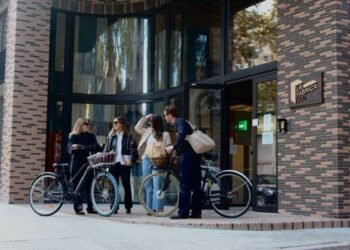Barcelona, one of Europe’s most visited cities, is taking significant steps to address the challenges of overtourism by doubling its tourist tax in 2025. This measure aims to regulate the influx of visitors while generating additional revenue to fund local projects, particularly housing initiatives.
The New Tax Structure
Under the revised system, tourists in Barcelona could pay up to €15 per person per night, depending on their accommodation type. This includes a municipal fee of €4 and a regional surcharge that varies by accommodation quality. For instance:
- Campsite visitors will pay €2 per night.
- Guests in five-star hotels could see their fees rise from €7.50 to €15.
- Cruise passengers staying less than 24 hours will face a doubled fee from €3 to €6.
This increase follows a 2024 decision to raise the city’s tourist tax cap from €4 to €8, providing the legal framework for further hikes. The combined taxes are expected to generate substantial revenue, with projections suggesting an increase from €70 million in 2024 to €165 million annually by 2025.
Goals and Allocation of Revenue
The Catalan government has committed to using at least 25% of the revenue for housing policies aimed at addressing Barcelona’s housing crisis. The funds will also support city cleaning, security measures, and infrastructure improvements. These initiatives reflect a broader strategy to shift from mass tourism toward “quality tourism” that adds value to the city.
Addressing Overtourism and Local Concerns
Barcelona’s decision comes amid growing frustration among residents over the negative impacts of tourism, including overcrowding, noise pollution, and rising property prices. Anti-tourism protests have been frequent in recent years, with locals demanding stricter regulations on short-term rentals and measures to preserve public spaces.
By increasing the tax burden on tourists, city officials hope to reduce visitor numbers and mitigate these issues while maintaining economic benefits. Deputy Mayor Jaume Collboni emphasized that the goal is not to discourage tourism entirely but to create a more sustainable model for the future.
Challenges and Industry Pushback
The hospitality sector has expressed strong opposition, labeling the tax increases as “fiscal asphyxiation.” Business leaders argue that higher costs could deter tourists, particularly those on tighter budgets, potentially impacting local businesses reliant on tourism. They have called for a comprehensive economic analysis before further implementation.
A Model for Global Tourism?
Barcelona’s approach could serve as a model for other cities facing similar challenges with overtourism. Destinations like Venice and Amsterdam are already exploring similar policies. The success or failure of Barcelona’s strategy will likely influence how other global tourist hotspots address the balance between economic benefits and preserving local quality of life.
As Barcelona implements these changes, it remains to be seen how they will impact both the city’s tourism industry and its residents’ well-being. For now, the city is at the forefront of redefining sustainable urban tourism.











































